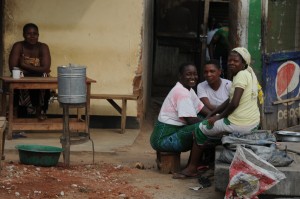Here’s a quite a dense quote : ‘The assumption that we are the solution to another’s problem becomes a proposition of self-interest, whereby we feel we are able to tell people what their problems are, and then deal with them on our own terms.’ Dickson & Dickson.
I got involved with Bridge2Aid to help dental professionals who had a deep desire to do something positive for people in developing countries, to find opportunities which would be truly valuable for the communities they were seeking to help. While living in Tanzania I saw many well-meaning volunteer programmes. Unfortunately most miss the mark – either taking paid work away from locals or doing things that simply aren’t needed. It’s not always easy to tell from the photos or stories which projects are working. Although many trips do good work, not all do great work.
Over the past 11 years, having run over 75 teams and worked with over 500 volunteers these are five things to think through when looking at opportunities to get involved:
1. Is it sustainable?
Will there be an impact after you have left? Does the programme create anything that doesn’t need ongoing external support?
2. Is it appropriate?
One of the major criticisms that Habib Benzian (World Health Organisation) made in his paper about dental charities in 2006 was that too many volunteers travel to a country bringing the same equipment and treatments that they use in the UK or the USA. This demoralises the local health workforce (who may not be able to perform such treatment or have access to this equipment) and uses time and resources which could be deployed on far more simple but appropriate treatments – for a far greater number of people. If it is more complex than pain relief and education, then there is a good chance that it will be inappropriate.
3. Is it integrated?
Very often volunteering organisations and opportunities ignore the fact that there is already a strategy for oral health in the country. The approach should taken not ignore this and or seek to impose what the volunteering organisation would like to do.
4. Is it ethical?
Does the organisation ask for your registration certificates and obtain a letter of good standing from the GDC before allowing you to practise? Do they insist on proof of extending indemnity cover? We have heard of many instances of volunteering organisations that arrive in a country without even registering with the local authorities. This lack of registration would not be tolerated in the UK, where visiting dentists have to gain approval from the GDC to practise. So why is the situation not the same when going to a developing country?
5. Does it involve training?
Without training nothing will change. At Bridge2Aid we could bring volunteers into Tanzania every week of the year to treat as many people as possible, but this still would not solve the problem of the huge burden of oral disease that exists in the country. Volunteers simply cannot gain access to some of the areas in the country where people most need help, and yet the training of a local Health Worker in emergency dentistry could place just such a person within the vicinity where people are suffering daily agony – all for the lack of a simple dental extraction.
We need to change the way we think about volunteering, and even about what constitutes dentistry for the masses in the developing world. As Bridge2Aid approaches 400 African trainees providing 4 million people with access to emergency dentistry in Tanzania, I’m more convinced than ever that this approach works, and meets the need in the most sustainable, appropriate, integrated and ethical way.
Our focus in the Bridge2Aid family is on providing permanent access to simple, effective emergency dentistry and education to the vast majority of the population who don’t have access to a dentist, and never will. It’s not an alternative to dentistry; it’s an alternative to no dentistry.
If you would like to find out more about volunteering with Bridge2Aid, click here.



